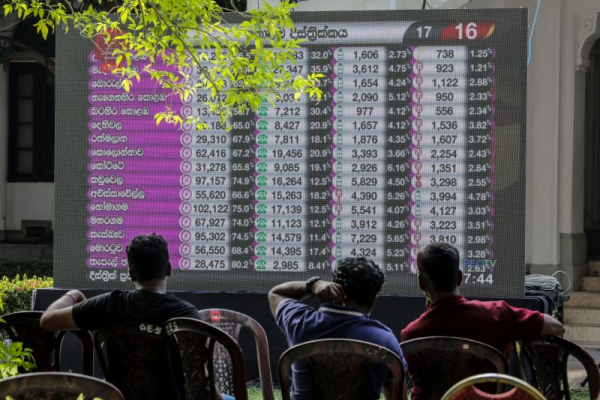
Election watchers look on as results roll in at a ballot counting center Friday in the Sri Lankan capital, Colombo. Photo by Chamila Karunarathne/EPA-EFE
The National People’s Power coalition of Sri Lankan President Anura Kumara Dissanayake swept to power after a snap parliamentary election in which voters handed the left-leaning alliance a greater than two-thirds majority.
Final results announced Friday showed Dissanayake’s NPP won 159 of 225 seats in parliament in the first election since his predecessor, Gotabaya Rajapaksa, was ousted in summer 2022 after months of street demonstrations by Sri Lankans angered by an economic crisis that saw the country default on its debt and a currency slump that left people unable to afford food or fuel. Advertisement
Speaking to reporters ahead of results, the 55-year-old called the poll “a crucial election that will mark a turning point in Sri Lanka.”
His Janatha Vimukthi Peramuna party-led movement had been gaining momentum after the public turned their ire on Rajapaksa and his family’s political dynasty, blaming them for the country’s economic woes amid accusations of graft and human rights violations from activists and opposition parties.
Dissanayake defeated opposition rival Sajith Premadasa in a presidential election in September on a “change-candidate” platform but called a snap election in parliament after finding himself at the helm of a party with just three lawmakers. Advertisement
He said then that there was “no point continuing with a parliament that is not in line with what the people want” and that he needed a new mandate for his policies.
He and the NPP fought this week’s election on a pledge to crack down and nepotism and corruption, with Dissanayake promising more generous welfare assistance to people as they continue to suffer the consequences of the economic crisis.
They also promised to renegotiate a $2.9 billion bail-out from the International Monetary Fund and debt restructuring agreements with overseas creditors secured by interim president Ranil Wickremesinghe, the terms of which involved a tough program of austerity imposed on Sri Lankans via substantial cuts in government spending.